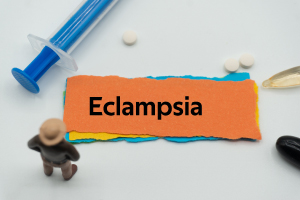

Individuals with attention deficit hyperactivity disorder (ADHD) are prone to inattention, impulsivity, and hyperactivity in their daily lives. Although ADHD is most often diagnosed in children, it may continue to affect a person into maturity, resulting in adult ADHD.
There is a high rate of adult ADHD in the United States and they add that only about a quarter of individuals with ADHD really get diagnosed and treated and that even fewer of those people actually seek medical attention.
So, this article will define adult ADHD, describe its symptoms, causes and explain how it can be diagnosed and treated.
Symptoms of Adult ADHD
ADHD is often diagnosed in children, but it may also impact adults. The majority of people with adult ADHD get better as they get older. Over time, for instance, most people grow less hyperactive. However, they may still have trouble focusing, act rashly, and take unnecessary risks.
Because of this, it may be challenging for an adult with ADHD to function in school, the workplace, and social situations. Anxiety, sadness, and poor self-esteem may all be more common in adults with ADHD.
Some of the symptoms of adult ADHD includes:
- getting quickly distracted and having trouble paying attention, particularly when bored
- having trouble listening to other people, including interrupting and completing their words
- having trouble paying attention, becoming distracted quickly, forgetting things, being impulsive, being irritable, and having a hard time controlling one’s emotions in the face of stress
A doctor will diagnose one of the three forms of adult ADHD based on the patient’s specific set of symptoms. Five or more of the symptoms (which are normally inappropriate for that adult’s developmental level) must be present for at least six months for a diagnosis of adult ADHD to be made.
They may frequently:
- produce reckless errors in one’s job or other pursuits due to a lack of focus
- struggle to focus on specific activities or responsibilities
- not give the impression of listening when spoken to directly
- not complete responsibilities at home or work have trouble getting their lives in order
- lose stuff needed for jobs and activities if you put off doing things that take mental work over a lengthy period of time.
- become sidetracked and forgetful in everyday life.
- Behaviour that is both hyperactive and impulsive
They may also:
- rise up when sitting is needed, fidget excessively with feet and hands, etc.
- start becoming antsy
- be too energetic and “on the go” to enjoy leisure activities in a calm setting.
- excessively chatty, unable to wait one’s time, and often interrupting others around them
Causes of Adult ADHD
Although the specific origins of ADHD remain unknown, studies have revealed that it tends to run in families. They are aware that those with ADHD have brains that are wired somewhat differently. Their cognitive development is slower. The brain’s signalling neurons also function somewhat differently.
Some of the causes of adult ADHD include:
- Failing as a parent
- Sucrose Intake
- Overexposure to electronic media
How to Treat Adult ADHD?
After a diagnosis of attention deficit hyperactivity disorder (ADHD) has been made, medication and referral to ADHD treatment for adults are common next steps.
Medication
Medication may be divided into two categories: stimulants and depressants. Dopamine and norepinephrine are two neurotransmitters that are boosted by stimulants. These are two substances that improve mental performance and focus.
People with hypertension, epilepsy, liver illness, renal disease, or anxiety problems should talk to their doctor before taking any stimulants for ADHD treatment for adults.
Although non-stimulants take longer to take effect than stimulants, they provide similar benefits in terms of increased concentration and decreased impulsivity. To maximise the effects, some physicians may prescribe a combination of stimulants and non-stimulants to a single patient.
Therapy
Therapists might also be referred patients by doctors for ADHD cure adults. The goal of both behavioural and cognitive behavioural therapy is to help the patient develop new, more positive habits. Support groups are another option that doctors may recommend.
Conclusion
Inattention, hyperactivity, and impulsivity are the hallmarks of attention deficit hyperactivity disorder (ADHD), a neurodevelopmental disorder. Once a doctor has made a diagnosis of adult ADHD, they may work with patients to develop a plan for managing and treating their condition.
A person with ADHD often carries other medical issues. Substance abuse, depression, and bipolar illness are all examples of these. If you are having adult ADHD symptoms and they are interfering with your everyday life, you should schedule an appointment with your doctor.




